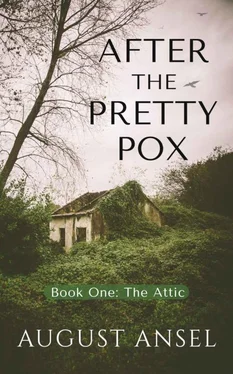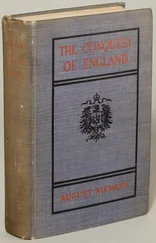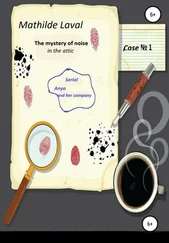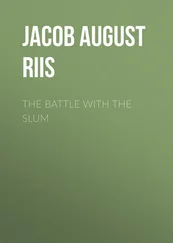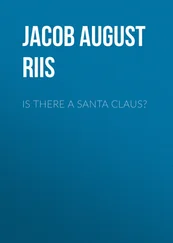“A map of what?” Renna said.
“As much of this corner of the world as you can,” Arie said. She enumerated on her fingers. “The area around the school, our immediate vicinity, and the river through these woods. After that, work your way north as far as you can, and leave room for the hills out to the east.”
Renna frowned at the unfolded brown paper, smoothing it with both hands. “Arie, I don’t know how to make a map.”
“Why not? Haven’t you lived here all your life?”
“Yeah. I mean, I could draw you a map of my old neighborhood, but I don’t know what to put in north of here. How do I know what…shape to make it? Or the size—the scale, I mean.”
Arie patted her once on the back and got to her feet. “My goodness, who beat you over the head with rules?” she said. “Look around you, Renna.” She spread her arms and gestured at the expanse of the attic. “Our whole life is a game of chance now. Take a chance. Do you think the map police are going to arrest you? In ancient times, cartographers dealt with the unknown by adding elaborate sea serpents and fanciful animals into their maps. Their art was not exactitude, it was knowledge and rumor combined with imagination. Learn as you go. Make it up, if you have to. Break rules, Renna. When we ally tonight, we’ll all throw in to work up the map. Now I have to get down and help Handy and Curran.”
Renna continued to stroke the paper sack, stared at it musingly.
“Don’t forget to get up and move around as much as you can,” Arie said. “Keep working your leg. And save the mapping until after you’ve worked on the other things. You’ll give your mind a chance to wander with the idea while you count beans. Then, when you’re ready to start, just do.” She went to the inside hatch and started down. Curran and Handy were already hard at work together, and their mingled voices made a good sound. “Do what my granddad advised,” she told Renna, “whenever he had a project going: do your best and caulk the rest.”
“Do what?”
“You’ll be fine,” Arie said, working her way into the closet below.
Talus bounded in to greet her, dark eyes lit up with all the company and commotion. Arie squatted down for a moment and stroked the dog’s head and neck. She was a handsome animal, and her heavy coat—gold and caramel, cloud pale and cinder dark—was silky under Arie’s hand. In a crouch, Arie was so short and Talus so tall that they were face-to-face. She gave Arie a single, companionable lick on the jaw.
“Where are those men?” Arie said. She and Talus wandered down the hall and came out into the living room together. It had been less than two hours since they’d decided on a course of action, and already she was stunned by what Curran and Handy had accomplished.
Piles of debris had been sorted and consolidated. Upholstered furniture, most mildewed and vomiting stuffing, was set upright and pushed to one wall. The doors and drawers of every cupboard and closet leaned on end near the front door. Granny’s antique dining table—all chrome and thick, indestructible Formica—was wiped clean and sported neat piles of cans, bottles, and a growing pile of coiled wire stripped from the backs of dead electronic devices. The black plastic cover from Pop’s turntable was pulled loose to serve as a container for the silverware and kitchen implements that had been tossed everywhere.
On the countertop that separated the kitchen from the dining room was an accumulation of things that seemed like alien artifacts: a dented toaster, the drawers from a metal file cabinet, the ornate face and workings of a smashed grandfather clock, a huge branch of coral and a chunk of petrified wood, a dark-blue Webster’s dictionary the size of a cinderblock, Pop’s marble beer coasters, and Granny’s pasta maker—which looked more like a medieval torture device than a kitchen gadget. A life-sized head made of solid teak, a souvenir from Granny and Pop’s Peace Corps service in the Philippines, was placed squarely in the center of everything. It was the image of a young woman. Her eyes, blank and blind as a Greek statue, stared placidly. She had long, carved earrings, a flower behind her ear, wooden hair piled in a polished heap. The head weighed twelve pounds if it weighed an ounce, Arie knew—a perfectly useless thing from a life abundant with inadequate treasures.
“We haven’t finished clearing the kitchen yet,” said Handy, “but we’re ready to start reinforcing. I found a mess of tools out in the garage.”
“I dumped them out of that thing,” said Arie, hooking a thumb at the roll-around tool chest wedged in at the front door. “I didn’t need much more than what I already had in my little box. What are you going to do with these?” She held up a pair of heavy tin snips.
Curran was clearing up the last of the mess with a ratty push broom. The pile of sand, broken glass, gravel, and desiccated animal shit was considerable. “For the windows,” he said. Talus sat off to one side, watching him work. “I’ll cut some panels out of that thing,” he said, nodding at the body of the metal file cabinet, “and the same with the washer and dryer. We’ll tack the panels over the frames before we board them up.”
“That’s good,” said Arie. “It’ll be a light barrier, too. I don’t know that you’ll have enough for all the windows, so first cover the ones that face the street. And you need to make the front door as secure as you can. We’re done using it.”
“On it,” said Curran. “Handy had a great idea.”
“The fence,” said Handy. “We’re going to pull off some sections of the chain-length. There’s plenty for every entry point. Once that stuff is pounded into the studs, we’ll board it up, too.”
Arie put her hands on her hips and looked around the room. It was strange to see it back in a certain rough order after so long. The midday sun showed black mildew that had climbed from baseboards to ceiling, especially on the east- and north-facing walls. “It’ll be dark all day,” she said. “But snug.”
“We’ll reinforce the back door but keep it usable,” said Handy. “Maybe better to come and go from down here for now. Not give anyone else ideas about coming in through the roof.” Arie could hear the smirk in his voice.
So could Curran, apparently. “Yeah, yeah,” he said. “I’m a bad creeper. You’ll be knocking me upside the head with that for a while, I guess.”
Arie took the broom from Curran. “A pair of comedians,” she said. “Because one just wasn’t enough. Maybe you can work up a routine and take it on the road.”
“You think?” said Curran. He looked at Handy. “What do you say—play the clubs in Philly?”
Handy gave him a long-suffering face and brushed his hair back with one arm. “Grab those bolt cutters. We’ll go take the fence apart, Sister,” he said. Better block the door while we’re out there.”
“Take Talus,” she said. The dog jumped up at the mention of her name and grinned around at the three of them. “She’s your lookout, aren’t you?”
This was how they used up the rest of the day.
Arie dismantled the confusion in the kitchen, nearly puking when she bailed the swampy mess out of the sink. Afterward, though, the level of stink in the house registered at a much more tolerable level. The shattered garden window left a sizeable hole; even set high as it was, they’d have to use a couple of cupboard doors to cover it. For now, she relished the sunlight and fresh air coming in.
She carried the strange flotsam of the life before from the former breakfast bar and arranged it on the topmost shelves in the kitchen, using the huge dictionary as a stepstool. She could just as easily have tossed it all into the yard, but somehow putting everything in orderly rows on the shelves lent a curator’s air, so that when she was finished the room resembled a museum of amusing artifacts, which she supposed they were. The tuneless plink and shimmy as the men took down the fence blended with the unintelligible timbre of their occasional conversation, creating an odd sense of homely satisfaction while she worked. A couple of times she went to the little bedroom and called up through the hatch to check on Renna, and Renna called back that things were coming along. She sounded pleasantly distracted, like anyone busy at a job of satisfying work.
Читать дальше
